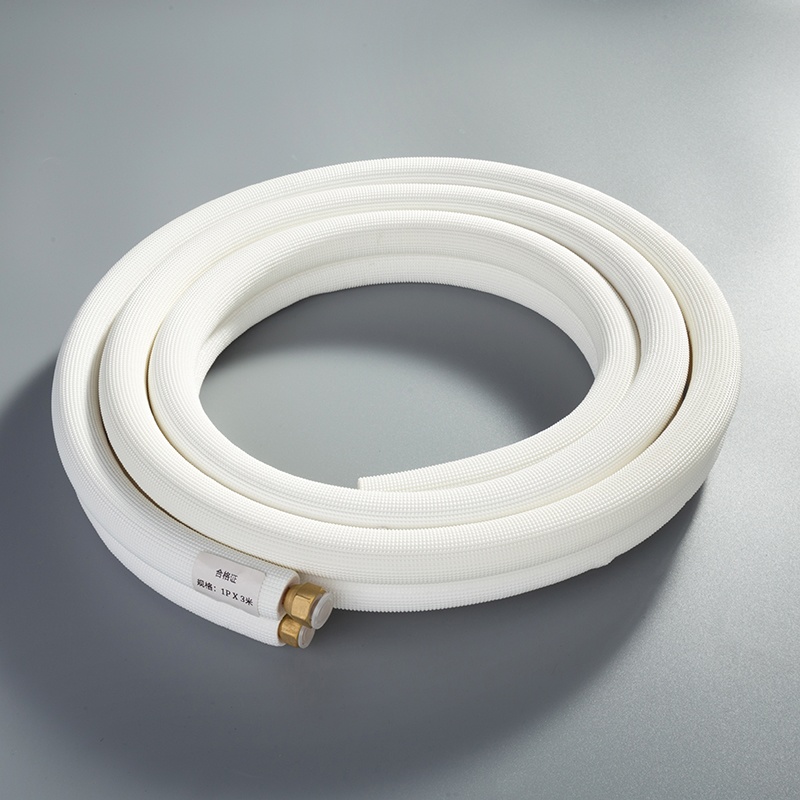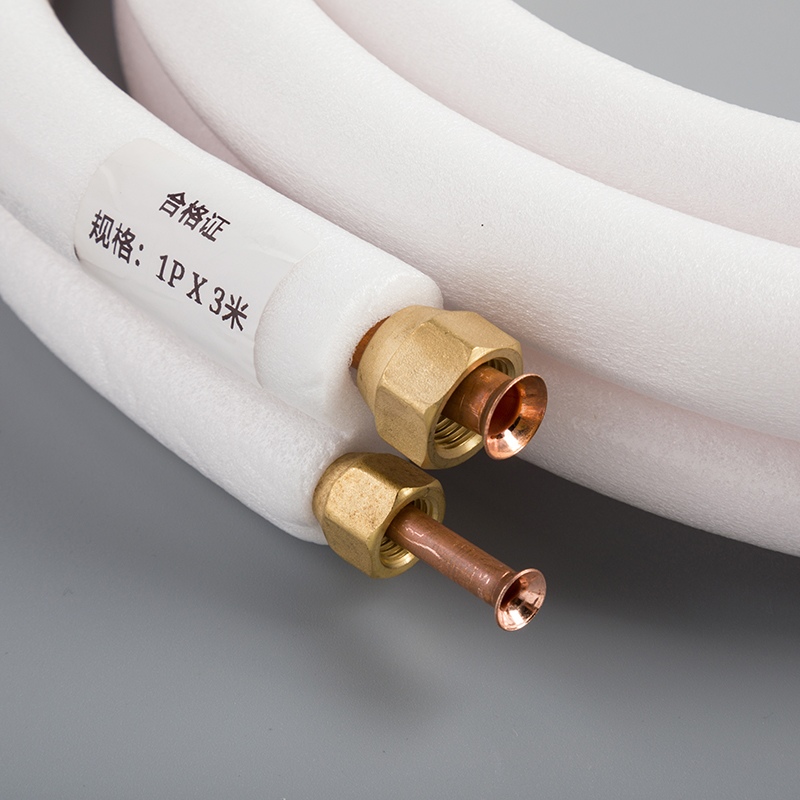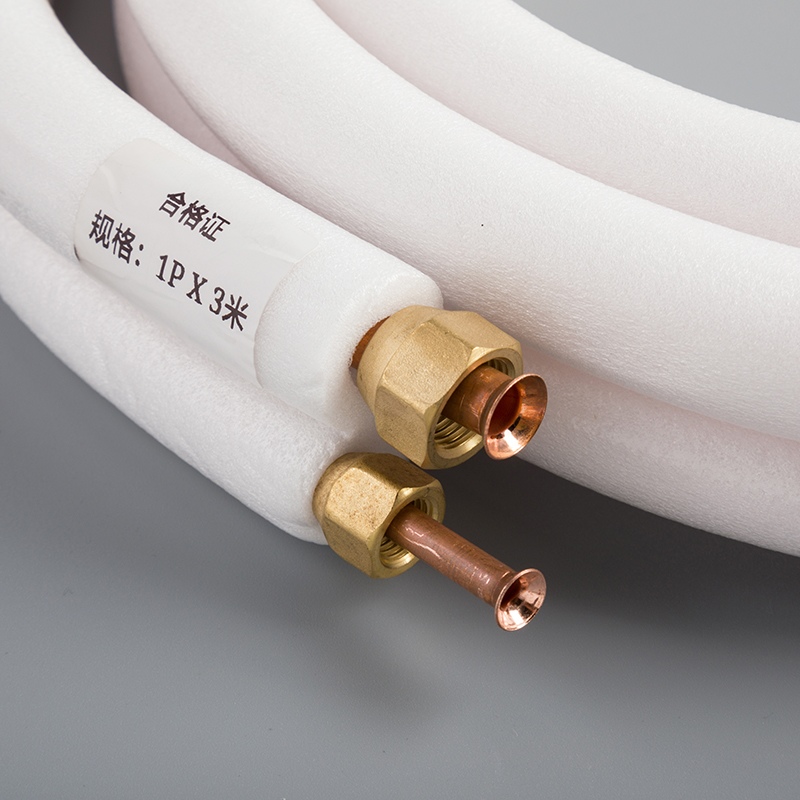Unveiling the Importance of Copper Insulation

Copper insulation serves as a protective shield for copper wires, safeguarding them against external elements. By preventing damage and enhancing longevity, this insulation method ensures the durability of copper wires in various applications. The upcoming blog will delve into the advantages, techniques, and diverse uses of copper insulation within different industries.
Benefits of Copper Insulation

Protection from External Factors
Copper insulation provides humidity and moisture resistance, safeguarding the wires from environmental elements that could cause deterioration. By implementing this insulation method, the copper wires remain shielded from the corrosive effects of moisture, ensuring their longevity.
To prevent physical damage, copper insulation acts as a barrier against external forces that may compromise the integrity of the wires. This protective layer shields the copper from potential harm, maintaining its structural stability over time.
Increased Longevity
Through durability enhancement, copper insulation prolongs the lifespan of the wires by shielding them from wear and tear. This protective measure ensures that the copper wires retain their functionality for an extended period, reducing the need for frequent replacements.
Moreover, cost efficiency is achieved through copper insulation as it minimizes maintenance expenses associated with wire replacements. By investing in quality insulation, businesses and industries can save on operational costs in the long run.
Enhanced Performance
The improved electrical conductivity facilitated by copper insulation ensures efficient transmission of electrical signals. This enhanced performance optimizes the functionality of electrical systems, promoting seamless operations across various applications.
Furthermore, safety assurance is a key benefit of copper insulation as it reduces the risk of electrical hazards. By insulating copper wires effectively, safety standards are met, providing a secure environment for both residential and industrial settings.
Methods of Copper Insulation
Enamel Coating
To insulate copper wires effectively, the application process of enamel coating is meticulously executed. Initially, the copper wires are cleaned to remove any impurities that could hinder the adhesion of the coating. Subsequently, a thin layer of enamel is applied uniformly onto the surface of the wires using specialized equipment. This process ensures that each wire is adequately insulated to prevent exposure to external elements.
The benefits of enamel coating extend beyond mere insulation. By providing a protective barrier, enamel coating shields the copper wires from environmental factors, thereby enhancing their longevity. Additionally, this method improves the overall durability of the wires, making them more resilient to wear and tear over time.
Use of Scrap Copper
When considering copper insulation, utilizing scrap copper is a sustainable and cost-effective approach. The recycling process involves melting down scrap copper to create new insulation materials for copper wires. This eco-friendly method not only reduces waste but also conserves valuable resources by repurposing existing materials.
Moreover, the environmental benefits of using scrap copper for insulation are significant. By recycling this material, industries contribute to reducing their carbon footprint and promoting a greener approach to manufacturing processes.
Advanced Insulating Materials
Innovations in insulating materials have revolutionized the field of copper insulation. Various types of materials such as polyethylene foam and rubber foam offer enhanced protection for copper wires. These materials are designed to resist moisture and provide superior insulation properties, ensuring optimal performance in diverse applications.
By incorporating advanced application techniques, such as precision cutting and seamless installation methods, these insulating materials can be tailored to specific requirements. This customization allows for efficient utilization of copper wires while maintaining high standards of safety and reliability.
Applications of Copper Insulation

Electrical Wiring
In residential use, copper insulation plays a vital role in ensuring the safety and efficiency of electrical systems within homes. By insulating copper wires, homeowners can mitigate the risk of electrical hazards and maintain a reliable power supply. The application of copper insulation in residential settings not only safeguards the wiring from environmental factors but also enhances the overall longevity of the electrical infrastructure.
On the industrial front, copper insulation is indispensable for various applications across manufacturing facilities and commercial establishments. Industrial use demands robust and durable electrical systems to support operations effectively. By incorporating copper insulation in industrial settings, businesses can uphold operational continuity, reduce maintenance costs, and ensure optimal performance of machinery and equipment.
Electronics
Within the realm of consumer electronics, copper insulation contributes significantly to product reliability and safety. From smartphones to household appliances, insulated copper wires are essential components that enable seamless functionality. The integration of copper insulation in consumer electronics guarantees stable connectivity, efficient power distribution, and protection against electrical faults.
In industrial electronics, where complex machinery and sophisticated systems are prevalent, the role of copper insulation is paramount. Industrial-grade equipment requires high-performance wiring solutions to withstand demanding operational conditions. By employing insulated copper wires in industrial electronics, manufacturers enhance system durability, minimize downtime risks, and uphold productivity standards.
Telecommunications
For signal transmission in telecommunications networks, copper insulation serves as a cornerstone for reliable data transfer and communication processes. Signal integrity is crucial in maintaining uninterrupted connectivity between devices and networks. Through effective copper insulation, telecommunication providers ensure seamless signal transmission, reduced interference issues, and enhanced network stability.
Data cables form the backbone of modern communication infrastructures, facilitating rapid data exchange across various platforms. The application of copper insulation in data cables optimizes data transfer speeds, minimizes signal loss during transmission, and reinforces data security measures. By prioritizing quality insulation materials, telecommunications companies bolster their network capabilities and deliver consistent connectivity services.
Copper insulation provides essential protection against external factors, ensuring system efficiency and longevity. Its role in HVAC systems is paramount, contributing to energy efficiency, preventing condensation, and maintaining indoor air quality. By complying with building codes and enhancing performance consistency, copper insulation plays a critical role in various industries. The evolving trends in copper insulation signify a continuous drive towards efficiency, sustainability, and enhanced system lifespan.
See Also
Revealing the Environmental Benefits of Dual Copper Pipe Coils
Exploring the Economic Advantages of Dual Copper Pipe Coils
The Superiority of Copper Pipes Over PVC: Eco Perspectives
Exploring the Durability of Copper Pipes Buried Underground
The Advantages of 1/4 3/8 Dual Copper Pipe Coils with White PE Insulation


